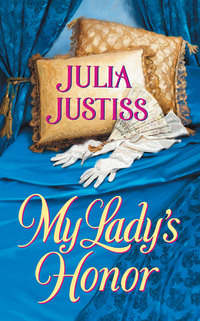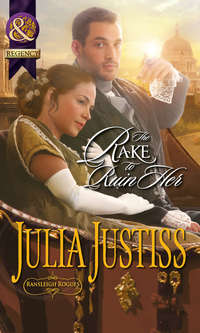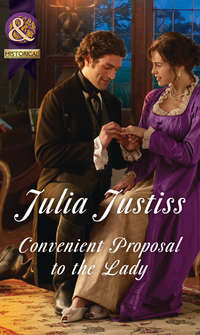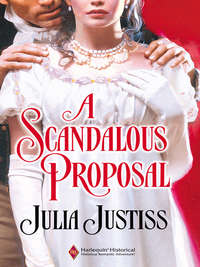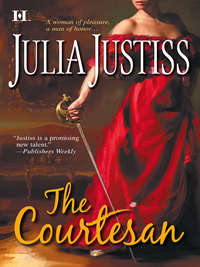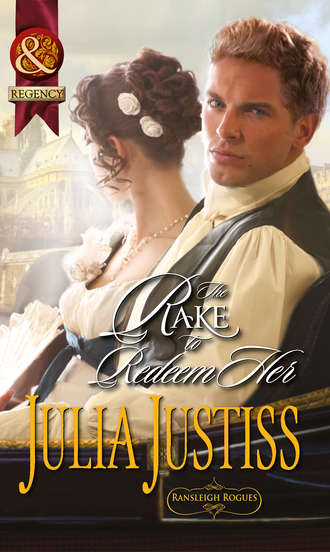
Полная версия
The Rake to Redeem Her


Like a man and a maid in love for the first time, they helped each other dress, with Will touching, kissing, laughing with Elodie as she donned her simple maid’s gown. He knew once they reached Paris she would try to slip away from him, but he felt too light and euphoric to worry about it. Happiness was fizzing in his chest like a freshly opened bottle of champagne.
He’d had many an adventure … but never one like this. Never with a woman who was a companion as uncomplaining as a man, as resourceful as any of the riding officers with whom he’d crept through the Spanish and Portuguese wilderness, working with partisans and disrupting the French.
Their liaison was too fragile to last, but for now he’d be like his Elodie and suck every iota of joy from an already glorious day that promised, once he’d taken care of provisions for the morrow and found her a room with a bed, to become even more wonderful.
He twined his fingers in hers as they went back to their horses. ‘How glad I am to be out of those monk’s robes! I’ve been dying to touch you as we travel.’
‘Good thing,’ she agreed. ‘Since you’re grinning like a farmer who’s just out-bargained a travelling tinker. I doubt anyone could look at us now and not know we are lovers.’
He stopped to give her a kiss. ‘Do you mind?’
‘No. I’m grateful for each moment we have together, Will. One never knows how many that may be.’
About the Author
JULIA JUSTISS wrote her first plot ideas for a Nancy Drew novel in the back of her third-grade notebook, and has been writing ever since. After such journalistic adventures as publishing poetry and editing an American Embassy newsletter she returned to her first love: writing fiction. Her Regency historical novels have been winners or finalists in the Romance Writers of America’s Golden Heart™, RT Book Reviews Best First Historical, Golden Quill, National Readers’ Choice and Daphne du Maurier contests. She lives with her husband, three children and two dogs in rural east Texas, where she also teaches high school French. For current news and contests, please visit her website at www.juliajustiss.com
Novels by the same author:
THE WEDDING GAMBLE
THE PROPER WIFE
MY LADY’S TRUST
MY LADY’S PLEASURE
MY LADY’S HONOUR
A SCANDALOUS PROPOSAL
SEDUCTIVE STRANGER
THE COURTESAN
THE THREE GIFTS
(part of A Regency Lords & Ladies Christmas anthology)
THE UNTAMED HEIRESS
ROGUE’S LADY
CHRISTMAS WEDDING WISH
(part of Regency Candlelit Christmas anthology)
THE SMUGGLER AND THE SOCIETY BRIDE* A MOST UNCONVENTIONAL MATCH WICKED WAGER FROM WAIF TO GENTLEMAN’S WIFE SOCIETY’S MOST DISREPUTABLE GENTLEMAN THE RAKE TO RUIN HER†
*Silk & Scandal Regency mini-series †Ransleigh Rogues
Did you know that some of these novels are also available as eBooks? Visit www.millsandboon.co.uk
The Rake to
Redeem Her
Julia Justiss

www.millsandboon.co.uk
AUTHOR NOTE
Sometimes a minor character grabs your imagination and won’t let go, intriguing you so much that you know you will have to uncover the rest of her story. Such was the case with the mysterious Madame Lefevre, the woman who lured Max Ransleigh into friendship at the Congress of Vienna in order to set up an assassination attempt on Lord Wellington in the first book of The Ransleigh Rogues mini-series, THE RAKE TO RUIN HER.
Where had she come from? What drove her to participate in the plot? What happened to her afterwards? As I explored the answers to those questions I discovered a unique and intriguing woman—a French emigrée whose family was destroyed by the Revolution, a survivor dragged along by the turbulent historical forces that catapulted France in one generation from monarchy to republic to empire and back. Taught by remorseless circumstance to depend only on herself, Elodie trusts no one and expects nothing.
Who could I pair with such a resourceful and determined heroine? Though I’d originally intended a different story for him, only one man could match her: Will Ransleigh, Max’s illegitimate cousin. Cast into the London slums on the death of his mother, a clergyman’s daughter seduced and abandoned by Max’s uncle, Will survived by his wits on the streets for six years before Max’s father plucked him from Seven Dials and sent him to his country estate, instructing Max and his cousins to make a proper Ransleigh out of this gutter rat.
I hope you will enjoy Will and Elodie’s story.
I love to hear from readers! Find me at my website,
www.juliajustiss.com, for excerpts, updates
and background bits about my books,
on Facebook at www.facebook.com/juliajustiss
and on Twitter @juliajustiss
Chapter One
Barton Abbey—late spring, 1816
‘I wager I could find her.’ Smouldering with anger against the woman who had destroyed his cousin Max’s diplomatic career, Will Ransleigh accepted a glass of brandy from his host.
‘Welcome back to England,’ Alastair Ransleigh said, saluting Will with his own glass before motioning him to an armchair. ‘Far be it from me to bet against “Wagering Will”, who never met a game of chance he couldn’t win. But why do you think you could find her, when Max, with all his official contacts, could not?’
‘I never had much use for officials,’ Will observed with a grimace. ‘Would have transported me for stealing a loaf of bread to feed myself and my starving mates.’
‘You’ve cleaned up so well, I sometimes forget you were once gallows-bait,’ Alastair said with a grin. ‘But to be fair, where would one expect to look? Madame Lefevre was cousin and hostess to Thierry St Arnaud, one of Prince Talleyrand’s top aides in the French delegation at the Congress of Vienna. The family’s quite old and well known, even if they did turn out to be Bonapartists.’
‘That may be. But it’s those in the serving class who really know what goes on: maids, valets, cooks, grooms, hotel employees, servants at the Hoffburg, keepers of public houses. I’ll use them to track Madame Lefevre.’
‘When I visited Max at his wife’s farm, he insisted he was content there.’ Alastair laughed. ‘He even claimed training horses is rather like diplomacy: one must coax rather than coerce. Except that horses don’t lie and their memories are short, so they don’t hold your mistakes against you.’
‘Just like Max to make light of it. But all of us—you, me, Dom—knew from our youth that Max was destined to be one of England’s foremost politicians—Prime Minister, even! Would he choose training horses over a brilliant government career, if he truly had a choice? I don’t believe it.’
‘I was suspicious, too, at first,’ Alastair admitted. ‘Max, who never showed any interest in a woman who wasn’t both beautiful and accomplished, happily wedding a little nobody who prefers rusticating in Kent to London society? But I ended up liking Caro. She rides better than I do—an admission I make most unwillingly—and breeds top-notch horseflesh on that farm in Kent. She’s quite impressive—which is saying something, given my generally low opinion of womankind.’ He paused, a bleakness passing over his face.
He’s still not over her, Will thought, once again consigning to eternal hellfire the woman who’d broken her engagement and Alastair’s heart.
His fury reviving against the latest female to harm one of his Ransleigh Rogue cousins, he continued, ‘The very idea is ridiculous—Max, involved in a plot to assassinate Wellington? I’d have thought his valour at Waterloo put a stop to that nonsense.’
Alastair sighed. ‘The hard truth is that the attempt in Vienna embarrassed both the French, who were negotiating as allies at the time, and our own forces, who didn’t winkle out the conspiracy. Now that Bonaparte’s put away at St Helena for good, neither side wanted to rake up old scandals.’
‘Couldn’t his father do anything? He’s practically run the Lords for years.’
‘The Earl of Swynford preferred not to champion his son and risk further damaging his political standing, already weakened by Max’s “lapse in judgement”,’ Alastair said drily.
‘So he abandoned him. Bastard!’ Will added a colourful curse from his days on the London streets. ‘Just like my dear uncle never to let his family’s needs get in the way of his political aspirations. Makes me glad I was born on the wrong side of the blanket.’
Alastair shook his head, his expression bitter. ‘Whoever set up the Vienna scheme was clever, I’ll give them that. There’d be no approach more likely to elicit Max’s response than to dangle before him some helpless woman in need of assistance.’
‘He always had a soft spot for the poor and downtrodden,’ Will agreed. ‘His treatment of me being a prime example. We need to get Madame Lefevre back to England! Let her explain how she invented some sad tale to delay Max’s rendezvous with Wellington, leaving the commander waiting alone, vulnerable to attack. Surely that would clear Max of blame, since no man who calls himself a gentleman would have refused a lady begging for his help. He found no trace of St Arnaud, either, while in Vienna?’
‘It appears he emigrated to the Americas. It’s uncertain whether Madame Lefevre accompanied him. If you do mean to search, it won’t be easy. It’s been more than a year since the attempt.’
Will shrugged. ‘An attack on the man who led all of Europe against Napoleon? People will remember that.’
Alastair opened his mouth as if to speak, then hesitated.
‘What?’ Will asked.
‘Don’t jump all over me for asking, but can you afford such a mission? The blunt you’ll get from selling out will last a while, but rather than haring off to the Continent, don’t you need to look for some occupation? Unless … did the earl come through and—?’
Will waved Alastair to silence. ‘No, the earl did not. You didn’t really expect our uncle to settle an allowance on me, did you?’
‘Well, he did promise, after you managed to scrape together the funds to buy your own commission, that if you made good in the army, he’d see you were settled afterward in a style befitting a Ransleigh.’
Will laughed. ‘I imagine he expected me to either be killed or cashiered out. And, no, I’ve no intention of going to him, cap in hand, to remind him of his pledge, so save your breath.’
‘Then what will you do?’
‘There are some possibilities. Before I pursue them, though, I’ll see Max reinstated to his former position. I’ve got sufficient blunt for the journey with enough extra to gild the right hands, if necessary.’
‘I’ll come with you. “Ransleigh Rogues for ever”, after all.’
‘No, you won’t. Wait, hear me out,’ he said, forestalling Alastair’s protest. ‘If I needed a sabre-wielding Hussar to ride beside me into a fight, there’s no man I’d rather have. But for this journey …’
Looking his cousin up and down, he grinned. ‘In your voice, your manner, even your walk, there’s no hiding that you’re Alastair Ransleigh of Barton Abbey, nephew of an earl, wealthy owner of vast property. I’ll need to travel as a man nobody notices and the alley rats would sniff you out in an instant.’
‘You’re the nephew of an earl yourself,’ Alastair pointed out.
‘Perhaps, but thanks to my dear father abandoning my mother, unwed and increasing, in the back streets of London, I had the benefit of six years’ education in survival. I know how thieves, Captain Sharps and cutthroats operate.’
‘But these will be Austrian thieves, Captain Sharps and cutthroats. And you don’t speak German.’
Will shrugged. ‘Thievery is thievery and you’d be surprised at my many talents. The army had more uses for me after Waterloo than simply letting me hang about the hospital, watching over Dom’s recovery.’
‘He’s healed now, hasn’t he?’ Alastair asked, diverted by Will’s mention of the fourth cousin in their Ransleigh Rogues’ gallery. ‘Has he … recovered?’
Will recalled the desolate look in Dom’s one remaining eye. ‘Dandy Dominick’, he’d been called, the handsomest man in the regiment. Besting them all at riding, hunting, shooting—and charming the ladies.
His face scarred, one arm gone, his physical prowess diminished, Dom would have to come to terms with much more than his injuries, Will knew. ‘Not yet. Once I got him safely back to England, he told me I’d wet-nursed him long enough and kicked me out. So I might as well go to Vienna.’
Alastair frowned. ‘I still don’t like you going there alone. Max said the authorities in Vienna strongly discouraged him from investigating the matter. You’ll get no help from them. It could even be dangerous.’
‘Dangerous?’ Will rose and made a circuit of the room. ‘Do you remember the first summer we were all together at Swynford Court?’ he asked abruptly, looking back at Alastair. ‘The lawyer who found me in Seven Dials had just turned me over to the earl, who, assured I was truly his brother’s child, dumped me in the country. Telling you, Max and Dom to make something of me, or else. I was … rather unlikeable.’
Alastair laughed. ‘An understatement! Surly, filthy, cursing everyone you encountered in barely comprehensible cant!’
‘After two weeks, you and Dom were ready to drown me in the lake. But Max wouldn’t give up. One night he caught me alone in the stables. I tried every dirty trick I knew, but he still beat the stuffing out of me. Then, cool as you please, he told me my behaviour had to change. That I was his cousin and a Ransleigh, and he was counting on me to learn to act like one. I didn’t make it easy, but he kept goading, coaxing, working on me, like water dripping on stone, until he finally convinced me there could be advantages to becoming more than the leader of thieves in a rookery. Max knew that if I didn’t change, when the earl returned at the end of the summer, blood kin or not, he would toss me back into the streets.’
Will stared past Alastair out the library window, seeing not the verdant pastures of Barton Abbey, but the narrow, noisome alleys of Seven Dials. ‘If he had, I’d probably be dead now. So I owe Max. For my life. For giving me the closest, most loyal friends and cousins any man could wish for. I swear on whatever honour I possess that I won’t take up my own life again until I see his name cleared. Until he has the choice, if he truly wishes, to become the great political leader we all know he should be.’
After studying him for a moment, Alastair nodded. ‘Very well. If there’s anything I can do, you’ll let me know, won’t you? If Max hadn’t led you and Dom after me into the army, I might not have survived, either. For months after Di—’ he halted, having almost said the forbidden name. ‘Well, I didn’t much care whether I lived or died.’
Will wondered if sometimes, Alastair still didn’t much care.
‘I might need some help on the official front when it comes time to get the wench into England.’
‘She may balk at returning. After all, if she proves herself a spy, the gallows await.’
‘I can be … persuasive.’
Alastair chuckled. ‘I don’t want to know. When do you propose to leave?’
‘Tomorrow.’
‘But you have just got back! Mama expects you to stay at least a week and Max will want to see you.’
Will shook his head. ‘Your mama’s being kind and Max would only try to dissuade me. Better I don’t see him until … after. If he asks, tell him the army still has business for me on the Continent. Besides, you were right; it’s been more than a year. No sense waiting for memories to fade any more than they already have.’
‘Do keep me posted. It might take some time to ride to your rescue.’
‘Tonight, all I’ll need rescue from is too much brandy. Unlikely, as you’re being entirely too stingy with it.’
Laughing, Alastair retrieved the bottle and refilled their glasses. ‘Ransleigh Rogues for ever!’
‘Ransleigh Rogues,’ Will replied, clinking his glass with Alastair’s.
Chapter Two
Vienna, Austria—six weeks later
Elodie Lefevre shifted her chair into the beam of afternoon sunlight spilling through the window. Taking up her needlework again, she breathed in the soft scent of the late-blooming daffodils she’d planted last autumn in the tiny courtyard garden below. Nodding violas added their sweet fragrance as well.
She paused a moment, letting the calm and beauty seep into her soul, soothing the restless anxiety that lurked always just below the surface. By this evening, she would have this consignment of embroidery finished. Clara would come by with dinner, bringing a new load of embroidery and payment for completing the last.
Against all the odds, she had survived. Despite the constant imperative gnawing within her to get back to Paris, she must remain patient and continue working, hoarding her slowly increasing store of coins. Perhaps late this year, she would finally have enough saved to return … and search for Philippe.
A wave of longing gripped her as her mind caressed his beloved image—the black curls falling over his brow, the dark, ever-curious, intelligent eyes, the driving energy that propelled him. Was he still in Paris? How had he changed in the nearly eighteen months since she’d left?
Would he recognise her? She glanced at herself in the mirror opposite. She was thinner, of course, after her long recovery, but except for her crooked fingers, most of the injuries didn’t show. Her blue eyes were shadowed, perhaps, and long hours indoors had dulled the gold highlights the sun had once burnished in her soft brown hair, but otherwise, she thought she looked much the same.
Suddenly, something—a faint stir of the air, a flicker of light—seized her attention. Instantly alert, moving only her eyes, she discovered the source: a barely perceptible movement in the uppermost corner of the mirror, which reflected both her image and the adjacent window that also overlooked the courtyard.
Scarcely breathing, she shifted her head a tiny bit to the right. Yes, someone was there—a man, perched soundlessly on the narrow balcony beside the window, watching her, all but the top of his tawny head and his eyes hidden behind the wall and the vines crawling up it. Had she not chanced to look into the mirror at that precise instant, she would never have seen him move into position.
From the elevation of his head, he must be tall, and agile, to have scaled the wall so soundlessly. The minuscule amount of him she could see gave her no hint whether he was thin or powerfully built. Whether he was armed, and if so, with what.
Not that the knowledge would do her much good. All she had to defend herself was her sewing scissors; her small pistol was hidden in her reticule in the wardrobe and her knife, in the drawer of the bedside table.
But as seconds passed and he remained motionless, she let out the breath she’d been holding. The afternoon light was bright; he could clearly see she was alone. If he’d meant to attack her, surely he would have made a move by now.
Who was he, then? Not one of the men who’d been watching the apartment from the corner ever since Clara brought her here. No one had bothered her since the foiled attack; so small and damaged a fish as herself, she thought, was of little interest, especially after Napoleon’s exile at St Helena put an end once and for all to dreams of a French empire.
Elodie kept her gaze riveted on the mirror as several more seconds dragged on. Despite her near-certainty the stranger did not mean her any immediate harm, her nerves—and a rising anger—finally prompted her to speak.
‘Monsieur, if you are not going to shoot me, why not come inside and tell me what you want?’
The watching eyes widened with surprise, then in one fluid motion the stranger swung himself through the window to land lightly before her. With a flourish, he swept her a bow. ‘Madame Lefevre, I presume?’
Elodie caught her breath, overwhelmed by the sheer masculine power of the man now straightening to his full height. If he meant to harm her, she was in very bad trouble indeed.
He must be English. No other men moved with such arrogance, as if they owned the earth by right. He loomed over her, tall and whipcord-lean. There was no mistaking the hard strength of the arms and shoulders that had levered him so effortlessly up to the balcony and swung him practically into her lap.
His clothes were unremarkable: loose-fitting coat, trousers and scuffed boots that might have been worn by any tradesman or clerk toiling away in the vast city.
But his face—angular jaw, chiselled cheekbones, slightly crooked nose, sensual mouth and the arresting turquoise blue of his eyes—would capture the attention of any woman who chanced to look at him. Certainly it captured hers, so completely that she momentarily forgot the potential danger he posed.
He smiled at her scrutiny, which might have embarrassed her, had she not been suddenly jolted by a sense of déjà vu. ‘Do I know you?’ she asked, struggling to work out why he seemed so familiar. ‘Have we met?’
The smile faded and his eyes went cold. ‘No, madame. You don’t know me, but I believe you knew my kinsman all too well. Max Ransleigh.’
Max. His image flashed into her mind: same height and build, thick, wavy golden hair, crystal-blue eyes. An air of command tempered by a kindness and courtesy that had warmed her heart then—and made it twist again now with regret as she recalled him.
The afternoon sun touched this man’s tawny hair with tints of auburn; rather than clear blue, his eyes were the hue of the Mediterranean off St Tropez. But beyond that, the two men were remarkably similar. ‘You are Max’s brother?’
‘His cousin. Will Ransleigh.’
‘He is well, I trust? I was sorry to have done him … a disservice. I hoped, with Napoleon escaping from Elba so soon after the event in Vienna, that his position had not been too adversely affected.’
He raised one eyebrow, his expression sardonic. Her momentary bedazzlement abruptly vanished as her senses returned to full alert. This man did not mean her well.
‘I regret to inform you that your tender hopes were not realised. As you, the cousin of a diplomat, surely know, the “event” that embroiled him in the near-assassination of his commander ruined his career. He was recalled in disgrace and only the outbreak of war allowed him a chance to redeem himself on the field of battle.’
‘I understand the carnage was terrible at Waterloo.’
‘It was. But even his valour there was not enough to restore his career, which was destroyed by his association with you.’
‘I am sorry for it.’ And she was. But given the stakes, if she had it all to do over again, she would do nothing differently.
‘You are sorry? How charming!’ he replied, his tone as sardonic as his expression.
Her anger flared again. At men, who used women as pawns to their own purposes. At a woman’s always-powerless position in their games. What matter if this man did not believe her? She would not give him the satisfaction of protesting.
As she remained silent, he said, ‘Then you will be delighted to know I intend to offer you a chance to make amends. Since you don’t appear to be prospering here …’ he swept a hand around to indicate the small room, with its worn carpet and shabby furnishing ‘… I see no reason why you shouldn’t agree to leave for England immediately.’


